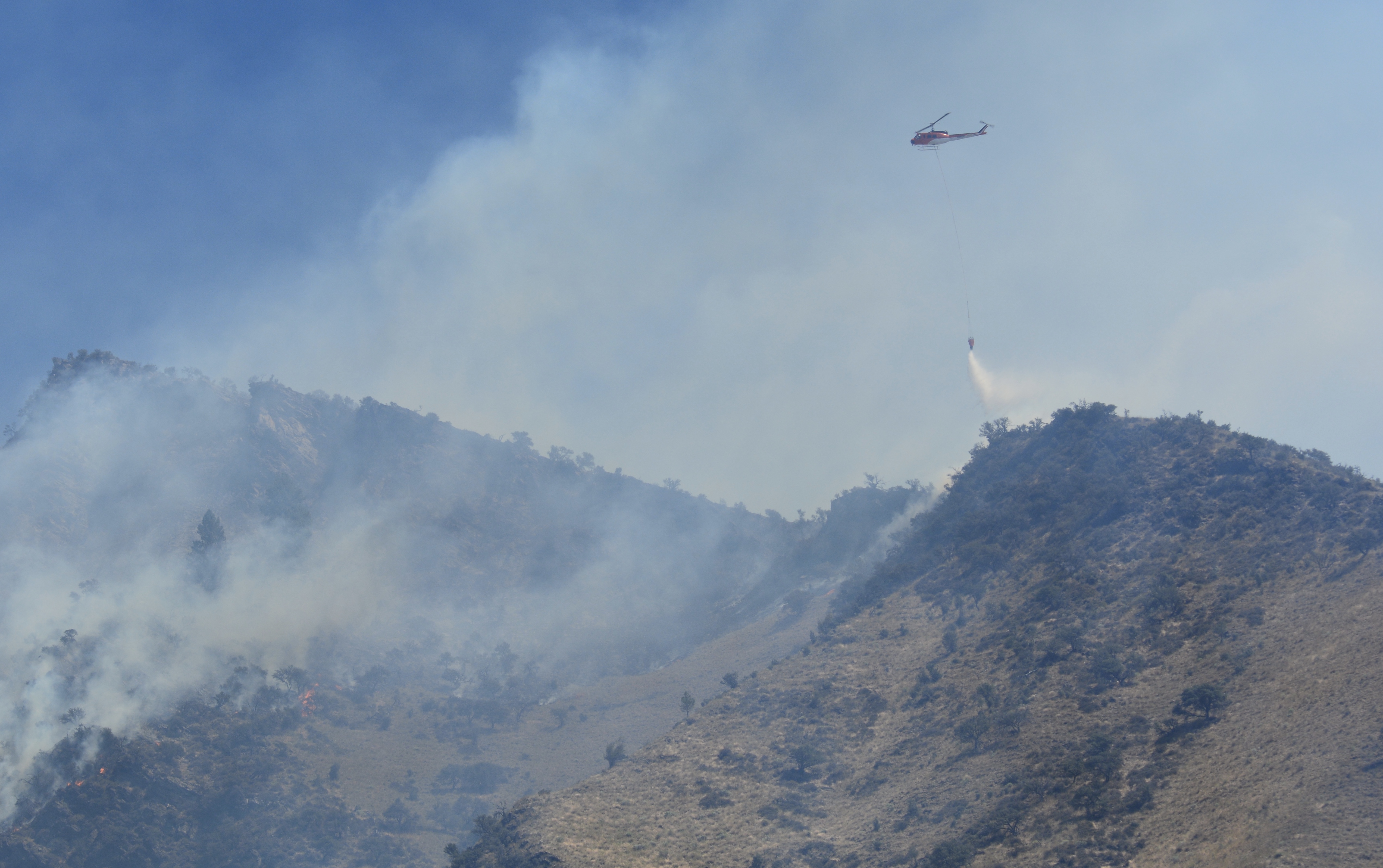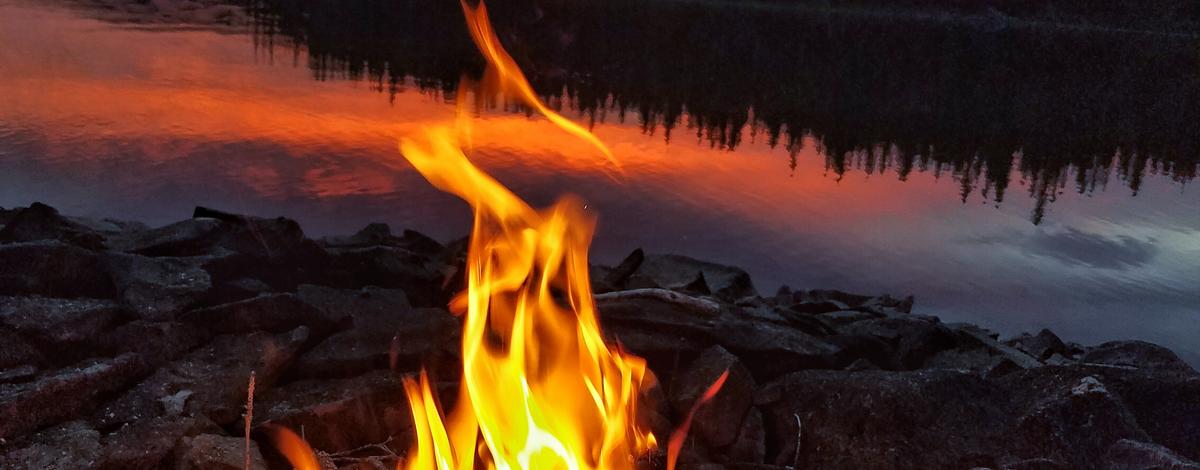Wildfires can threaten public safety, destroy property, harm productive wildlife habitat, create nuisance smoke, and much more. It’s in everyone’s interest to prevent wildfires from occurring, and human-caused wildfires are unfortunately common during summer, but doing your part to prevent wildfires can make a difference to reduce them.

During wildfire season, which typically lasts from summer through the first significant rain or snow during fall, consider foregoing a campfire, or be extremely cautious and follow these tips, rules and guidelines:
Know the fire restrictions: It can be a little tricky because you have to know who manages the land you’re using, but it’s the responsibility of the user to know if fire restrictions are in place and abide by them. During a hot, dry summer, fire restrictions are highly likely. Idaho Department of Lands has created a statewide map to show current fire restrictions.
Here’s a quick cheat sheet for campers: During Stage 1 fire restrictions, campfires are only allowed within a designated recreation site, and within a fire structure provided by the administrative agency. During Stage 2 restrictions, no campfires, period. (See complete rules below.)
Why are fire restrictions done locally rather than for the entire state? Local agencies follow established, statewide-approved guidelines for implementing fire restrictions in their geographic areas. The local decision-making approach is critical for determining the right place and the right time for fire restrictions.
Be prepared: If you're going to have a campfire (where and when it’s allowed), have water and a shovel handy. Keep fires small and manageable, extinguish them completely before you go to bed, or leave your campsite. Make sure it is COLD before leaving the campsite. If it's too hot to touch, it's too hot to leave.
Do your part: If you see an unattended campfire, put it out, or report it by calling 911.
Check for wildfire activity before you go: Some areas can be closed miles away from the actual fire, including roads and trails, so it’s best to know before you arrive and find your area closed. To see the current fire map for Idaho and beyond, go to inciweb.nwcg.gov. You can also get more fire information and maps on Fish and Game’s Fire Information webpage.
Have an egress plan: When asked to evacuate, do so immediately, and know alternative routes to get home.
If you’re planning a fall hunt, give yourself options: Hunts are rarely closed due to wildfires for the entire season, but be prepared to access your hunt area through different routes, or hunt later in the season to avoid fire closures.
If you’re an angler, avoid fire areas: There are lots of places fish in Idaho, so avoid areas near where there are active wildfires.
Stage I Fire Restrictions
The following are prohibited on the state and private forestland and rangeland, and on public land, roads, and trails until further notice:
Building, maintaining, attending, or using a fire, campfire, or stove fire except within a designated recreation site, within a fire structure provided by the administrative agency, or on their own land and only within an owner-provided fire structure (see definition below)
Smoking, except within an enclosed vehicle or building, a developed recreation site, or while stopped in an area at least three feet in diameter that is barren or cleared of all flammable materials.
Exemptions
- Persons with a written permit that specifically authorizes the otherwise prohibited act.
- Persons using fire fueled solely by liquid petroleum or LPG fuels.
- Persons conducting activities in those designated areas where the activity is specifically authorized by written posted notice.
- Any Federal, State, or local officer, or member of an organized rescue or firefighting force in the performance of an official duty.
- All land within a city boundary is exempted
- Other exemptions unique to each agency
Violation of the above prohibited acts is punishable by fine of not more that $1,000 and/or imprisonment for not more than 12 months (Title 18 USC 1856, Title 43 USC 1701, Title 43 9212.4, and/or appropriate State laws).
Stage II Fire Restrictions
The following are prohibited on state and private forestland and rangeland, and on public land, roads, and trails until further notice:
Building, maintaining, attending, or using a fire, campfire or stove fire.
Smoking, except within an enclosed vehicle or building, a designated recreation site or while stopped in an area at least three feet in diameter that is barren or cleared of all flammable materials.
Operating motorized vehicles off designated roads and trails.
The following acts are prohibited from 1 p.m. to 1 a.m. A patrol is required for one hour following cessation of all work as described below.
- Operating a chainsaw or other equipment powered by an internal combustion engine for felling, bucking, skidding, processing, road building and woodcutting during industrial operations or fire wood gathering.
- Blasting, welding or other activities that generate flame or flammable material.
EXEMPTIONS
- Persons with a written permit that specifically authorizes the otherwise prohibited act.
- Persons using a fire solely fueled by liquid petroleum or LPG fuels.
- Persons conducting activities in those designated areas where the activity is specifically authorized by written posted notice.
- Any Federal, State or local officer or member of an organized rescue or firefighting force in the performance of an official duty.
- All land within a city boundary is exempted.
- Other exemptions unique to each agency.

